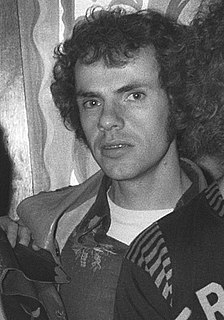A Quote by David Lidington
Prison officers face enormous pressure. The levels of violence inside our prisons are too high.
Related Quotes
The prison-industrial complex employs millions of people directly and indirectly. Judges, prosecutors, defense attorneys, prison guards, construction companies that build prisons, police, probation officers, court clerks, the list goes on and on. Many predominately white rural communities have come to believe that their local economies depend on prisons for jobs.
There is simply too much unnecessary suffering in our world. And we should see that as a national security risk, by the way. Given enough time, desperate people will tend to do desperate things. At a certain point you won't be able to build enough prisons or enough bombs to eradicate the effects of all that violence inside so many hearts.
We must realize that violence is not confined to physical violence. Fear is violence, caste discrimination is violence, exploitation of others, however subtle, is violence, segregation is violence, thinking ill of others and condemning others are violence. In order to reduce individual acts of physical violence, we must work to eliminate violence at all levels, mental, verbal, personal, and social, including violence to animals, plants, and all other forms of life.
The war on drugs causes other supplemental crimes to take place because of the original illegality of it. But then again, that's the other reason that they're fighting it is the corporate prisons they have now. Because they've privatized all our prisons, corporations have to make money, and the only way they can make money is, I believe, the prisons have to be at least 80-90 percent full. That's why the United States - which is home of the brave, land of the free - we have more people in prison than any other country in the world.
Kids are growing up in communities in which they see their loved ones cycling in and out of prison and in which they are sent the message in countless ways that they, too, are going to prison one way or another. We cannot build healthy, functioning schools within a context where there is no funding available because it's going to building prisons and police forces.
The rush and pressure of modern life are a form, perhaps the most common form, of contemporary violence. To allow oneself to be carried away by a multitude of conflicting concerns, to surrender to too many demands, to commit oneself to too many projects, to want to help everyone in everything, is to succumb to violence. The frenzy of our activity neutralizes our work for peace. It destroys our own inner capacity for peace. It destroys the fruitfulness of our own work, because it kills the root of inner wisdom which makes work fruitful.
































